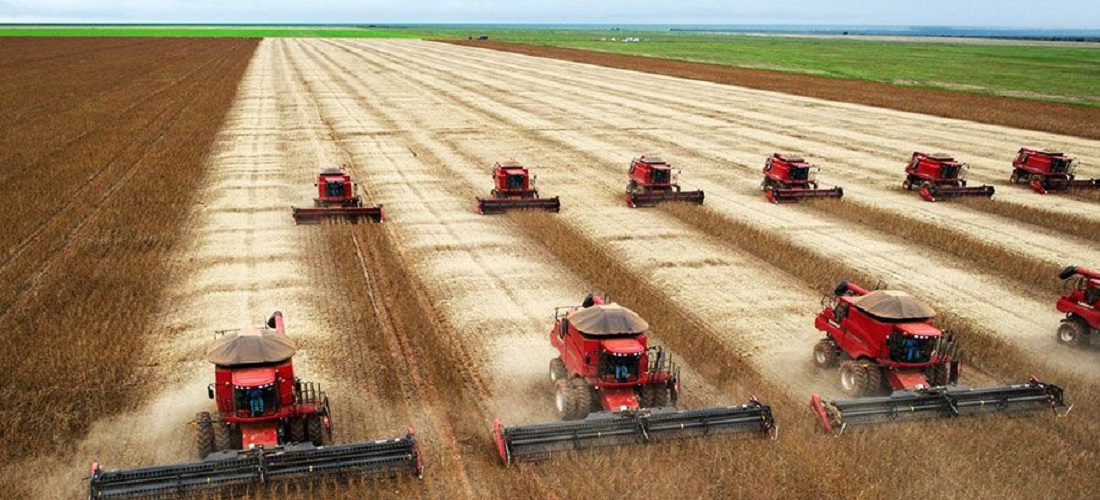
Brazil’s soybean production costs outpace global competitors
Jun, 11, 2024 Posted by Sylvia SchandertWeek 202424
Brazil’s soybean production costs exceed those of key competitors, Argentina and the United States. Brazilian farmers spend approximately $782 per hectare on soybean cultivation, compared to $665 in the US and $351 in Argentina, as reported by Itaú BBA—using an average exchange rate of R$5.15 for the 2024/25 harvest season.
The analysis by Itaú BBA estimates Brazilian costs using data on a typical farm in Mato Grosso provided by the Mato Grosso Institute of Agricultural Economics (IMEA). For the US, the bank used figures from the state of Illinois, as calculated by the University of Illinois, and for Argentina, data from the central Zona Núcleo region, sourced from “Márgenes Agropecuarios.”
Argentina’s lower production costs are attributed to its more fertile soil and reduced pest and disease burdens, resulting in input costs for fertilizers, seeds, and pesticides that are four times lower than those in Brazil.
The study highlights that in Brazil, the average costs per hectare are distributed as follows: seeds at $129, fertilizers at $335, pesticides at $235, mechanization at $36, and labor at $44. Despite high investment in inputs, Brazil’s soybean productivity enhances its competitiveness on the global stage. Even with superior yields, however, Brazil remains the most expensive in terms of production costs.
Specifically, the average production cost in Brazil is $13.2 per bag, based on a yield of 60 bags per hectare. In contrast, Argentina’s costs are significantly lower at $7 per bag, with a yield of 50 bags per hectare. The United States follows with an average cost of $11.4 per bag and productivity of 58 bags per hectare during the 2024/25 harvest.
The following chart shows Brazil’s soy export volume measured in metric tonnes between Jan 2021 and Mar 2024. The data comes from DataLiner, a Datamar business intelligence product.
Soy Export Volume | Jan 2021 – Mar 2024 | WTMT
Source: DataLiner (click here to request a demo)
Itaú BBA’s report highlights that Argentina had higher per-bag production costs than Brazil and the US only during the 2022/23 harvest, attributed to a crop failure caused by the adverse effects of La Niña, which slashed soybean productivity by nearly 40%.
For the 2024/25 harvest, converting operating costs into dollars per bushel, Itaú BBA analyzed the theoretical operating margins for soybean producers based on the closing prices of soybean futures on the Chicago Stock Exchange on June 3, aligned with the harvest contracts for each country. Brazilian producers are expected to see a margin of $5.84 per bushel, whereas American producers could realize $6.47 per bushel, and Argentine producers might achieve $8.68 per bushel.
The analysis was based on the November 2024 futures contract for US producers, the March 2025 contract for Brazilian producers, and the May 2025 contract for Argentine producers, which closed at $11.64, $11.80, and $11.84 per bushel, respectively, on June 3.
According to Itaú BBA, while leases notably inflate production costs in the US, Brazil’s expenses are driven higher by the extensive soil corrections and pest management required by its tropical climate. However, unlike the US and Argentina, Brazil can cultivate more than one crop per year, enhancing the annual revenue potential of its farmland.
The report also highlights that inadequate infrastructure and logistics increase the cost of transporting soy to Brazilian ports, making it more expensive to export. In Argentina, competitiveness is impacted by policies like “retenciones”—export taxes charged to certain exported goods, like soybeans, wheat, and corn—that can discourage market participation.
Brazil remains the leading soybean producer, harvesting 148 million tonnes in the 2023/24 season. In comparison, the US produced 113.3 million tonnes and Argentina 50 million tonnes during the same period.
Source: Valor Internacional
-
Ports and Terminals
Oct, 09, 2023
0
Impressive 70.96% Surge in Operations at Cabedelo Port in Brazil
-
Meat
Nov, 01, 2022
0
Mexico detects H5N1 bird flu in farm near U.S. border
-
Other Cargo
Oct, 18, 2024
0
Exports of milk and dairy products drop in September
-
Ports and Terminals
Jan, 24, 2024
0
Possibility of work delays gains strength as government disputes Santos tunnel project authorship



